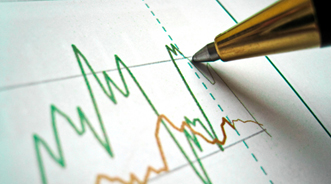RVI Group Connects Latest Wholesale Price Changes to 2013 Projections

By subscribing, you agree to receive communications from Auto Remarketing and our partners in accordance with our Privacy Policy. We may share your information with select partners and sponsors who may contact you about their products and services. You may unsubscribe at any time.
STAMFORD, Conn. –
RVI Group’s third-quarter risk outlook showed how the used-vehicle price softening analysts found in August reinforces the possibility that an even greater price decline is coming next year.
The group determined used prices for two- to five-year old models (seasonally adjusted) dipped by 0.7 percent last month when compared to July figures. However, analysts acknowledged that level remained strong year-over-year, actually increasing by 2.1 percent since last August.
In what RVI calls real used-vehicle prices — after adjusting for MSRP — August prices actually showed a decrease of 0.5-percent from July and a 0.2-percent downtick from last August.
Furthermore, the group’s auction supply index declined in August and has produced a 19.4-percent decline so far this year on an annual basis. RVI said the movement correlates with an increase in used-vehicle prices in 2012 when compared to 2011.
So what does the most recent price movement mean for used-car managers already looking to plan for next year?
“Used-car prices will face downward pressures,” analysts declared. “In 2013, there is an expected increase in new-car competition (more vehicles will have less total market share amongst their segments) although it is somewhat offset by continued low levels of supply.
Subscribe to Auto Remarketing to stay informed and stay ahead.
By subscribing, you agree to receive communications from Auto Remarketing and our partners in accordance with our Privacy Policy. We may share your information with select partners and sponsors who may contact you about their products and services. You may unsubscribe at any time.
“After 2013, there will be downward pressure on used,” they continued.
RVI mentioned that certain elements could change whether or not its projection comes true.
“It should be noted that our forecasts are based on relatively stable conditions in the future, but there are two major economic situations that could have significant impacts on the outcome,” analysts emphasized.
“This includes uncertainty in the European debt crisis and the Middle Eastern political turmoil,” they noted. “If these situations were to result in drastic changes to the global economy, there could be strong impacts on the used-car market.”
Those variables also could have profound ramifications on compact car prices, according to RVI.
“Used-vehicle prices for compacts, although historically high, have underperformed the market average over the past 12 months,” analysts conceded.
“Used-car prices for the segment are expected to begin decreasing in 2013,” they continued. “Competition in the segment is expected to continue increasing through 2017. Used-vehicle supply will decline through 2013 and then increase through 2017.
“If turmoil in the Middle East political situation were to result in higher gas prices, used-car prices for compacts would see a strong increase,” RVI predicted.
More Economic Discussion
Also contained within its third-quarter report, RVI elaborated on the state of the U.S. economy, as well as how other indicators could come into play.
“The U.S. economy continues to recover from the recession, but it still has a long way to go,” analysts noted.
RVI recapped that GDP increased in the second quarter by 1.7 percent. Meanwhile, retail prices increased by 1.4 percent in July from a year earlier as gas prices climbed to $3.78 percent gallon in August, marking an 8.1 rise from July.
As of the week of Sept. 10, the group noted, gas prices rose to $3.91 per gallon.
However, analysts mentioned that consumer sentiment moved up to 74.3 in August, the first increase in the past three months.
“This is due to consumers having a more favorable view of their present financial situations as the amount of their outstanding debts decreased,” RVI explained.
“On the other hand, people generally do not expect wage increases in the coming year and are even expecting to have less purchasing power due to inflation-adjusted incomes," the group added.
The firm pointed out unemployment showed improvement in August, dropping to 8.1 percent. This was a 0.2-percent decrease from July, “although it was the first decrease in the past four months,” RVI said.
“The domestic economy could also be greatly impacted due to the upcoming presidential election and uncertainty about its looming fiscal cliff, in which Bush’s tax cuts would end and mandated spending would be reduced at the end of 2012,” analysts surmised.


